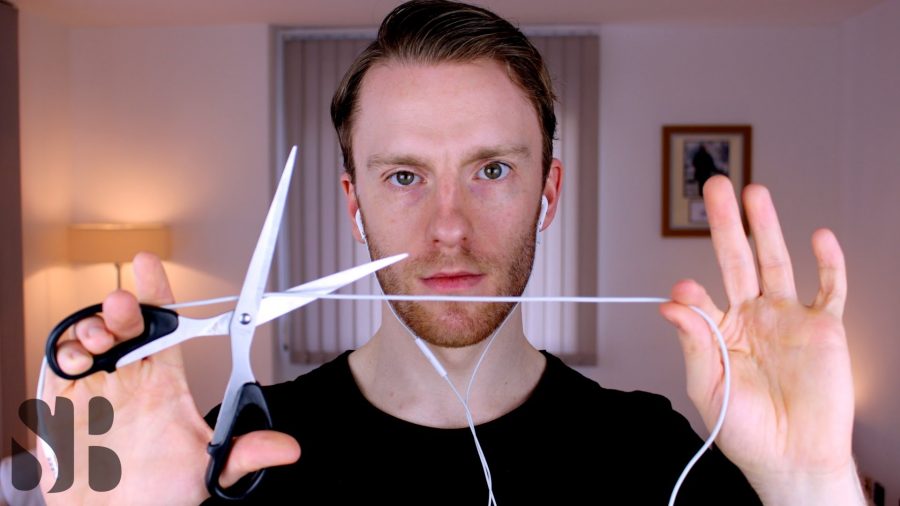Secret Life of Magic w/ Steven Bridges
February 8, 2017
Everyone knows the saying, “a magician never reveals his secrets.” But what goes on in the life of magicians that the general public probably doesn’t know about? Steven Bridges, a full time magician and Youtuber, has given advice for those aspiring to become magicians, as well as, his experience with magic in his life.
_____
Magic Tricks and Performances
Every magician has his basket of tricks to pick and choose from. From card tricks to persuasion, the many different types of magic are endless. Most people become interested in magic through commercially sold tricks or tricks known to almost all by searching up simple card tricks or buying magic kits. These little tricks and gimmicks inspire those that want to get into magic and spark ideas into creating new tricks for an experience that will blow your mind or leave you in deep frustration.
Q: How did you become interested in magic?
Steven Bridges: “I remember my Dad showing me David Blaine’s show ‘Street Magic’ on TV and being hooked. I think the fact that my Dad was so impressed by it also made me even more amazed.
I’ve always liked learning cool skills. Whether it’s juggling, skateboarding (which I’m terrible at), dance, solving a Rubik’s cube etc, I just love learning cool skills. And to me I think magic is the coolest skill because you’re literally doing the impossible. You can’t beat that. What’s better than doing the impossible?”
Buying Tricks
Tricks can be bought by anyone of course. Some being kits, tricks, and gimmicks from local magic stores while others may be a full act created by another magician. Books, especially, are a great source of starting in the world of magic. Magic books will be your source as a guide and a tool for a successful start and an interest in magic.
Stealing Tricks
In the magic industry, magic tricks performed by anyone is fair game to steal, decipher, etc. If you or someone manages to figure out how to solve another magician’s trick, it is fair game for them to use as their own, as are all tricks. Stealing tricks is complicated because the magician that wants to steal a trick would have to figure out the steps of the trick and cannot buy them commercially. The worst possible outcome is someone debunking a magician’s trick, that they worked so hard to create, and reveal it to the world.
Q: Do you come up with your own tricks, and how hard is it to come up with the idea?
Steven Bridges: “I do a mixture. Compared to a lot of magicians, I don’t consider myself particularly creative. Some of the magic people like Tom Elderfield create makes me take a step back and go ‘wow, am I even good at magic?!’
Most of the time when I create a routine I’ll take one trick that someone else has made and then build a series of other tricks around it. For example the sugar trick I did recently. Another magician came up with a way of making sugar packets switch places. I took that principle and applied it in a different way and then built a routine around it.
With creativity, I always find having a some kind of limitation or theme really helpful.”
_____
Types of Tricks
I CANNOT share how to perform tricks, but I can tell you what types of magic tricks there are. These tricks could be:
Card Tricks: Mainly tricks using standard issued playing cards. Bicycle playing cards are main brand of cards that many magicians use due to their accessibility and finish. Magicians have two choices for obtaining bicycle cards, either buying them at local retail stores or online or, at the end of the day, go down to any casino and ask for playing cards that they are going to throw out for the day.
Prop Tricks: Prop tricks are tricks that are used in any magic performance, this also includes cards. Some props may include, but are not limited to: coins, balls, cups, forks, hats, animals, cages, rope, stationery, envelopes, etc.
Persuasion & Manipulation: Often the most doubted of all magic tricks, persuasion and manipulation at the end of the day is the most confusing or hard to grasp magic act. Mostly because we, as people, are doubtful unless it actually happens to us. Acts of persuasion and manipulation are when magicians induce us into doing something.
Q: What would you consider your favorite types of magic tricks? (Cards, other props, persuasion, etc.)
Steven Bridges: I love coin magic but I think it’s quite limited. Once you’ve made coins vanish and reappear there’s not a great deal of other tricks you can do. But I love coin magic because it’s simple, direct, and can be really incredible.
I love mentalism for creativity – I don’t perform a lot of it but I love brainstorming mentalism with other performers.
And sleight of hand stuff is great fun, I love sitting in my flat with a load of sugar packets and trying to figure out how to make great magic happen. Haha
_____
Performances and Acts
Street Performances: With street performances comes situations that may be problematic for a new magician. During street performances, magicians will be performing tricks with a crowd surrounding them, meaning that he or she is being observed at all times. This leaves little room for error but more often brings bigger applause and more of a surprise. Things that a street magician must keep in mind are; they must draw in an audience, because they wont come to you if you don’t appeal to them, they must be able to project their voice or have the equipment to do so, and most of all, as with any other performances, they should pour themselves into it and keep the performance alive.
Steven’s Thoughts on Street and Stage Performances: Oh, where to begin! Street magic makes stage feel easy. I’ve learned so much from street performing. You’ve got to get an audience to stop and watch you, watch the whole show, and then tip you at the end! All those elements have challenges. Now throw in bad weather, drunk hecklers, (some) homeless people that mess up your show, and you’ve got a challenge.
Stage Performances: In stage performances, you can perform any tricks you want, preferably ones that you are comfortable with as people
Setbacks: Setbacks are a part of everything, here is what Steven has to say about setbacks.
“I think set backs are a part of the process. When you pursue anything in life, you get set backs. I think what makes someone successful is their ability to keep going despite any setbacks.”
“Living in London is a pretty pricey city so pursuing magic full time has been a pretty major challenge. But you figure out ways to make it work if you just keep persisting. Sometimes I’ll work really hard on a routine and then upload it, and it doesn’t get the response I was hoping for. Or sometimes, I have a vision for something that I know is great in my head. But when you come to creating it, I just cant get it to be as good. But hey, it’s all a learning curve.”
_____
Preparation
Steven Bridges is a full time magician and has given some advice on preparations before any performances.
Q: What would you consider necessary as preparations before anyone goes onto stage, whether magic/singing/etc.?
Steven Bridges: “The number one thing is mindset. You need to be in the zone. Whatever gets you in that mindset you need to do. Most of the time I’ll just mess around or say random stuff on the microphone when I’m on the street before I start. It’s about shaking off any awkwardness and feeling totally confident doing whatever. So being a bit silly sometimes can be good because I don’t feel shy when I start the show.”
“I normally find my first show of the day is the worst, because as I said it takes some time to get in the zone. So a warm up performance could be helpful.”
“But other than that I don’t really warm up to be honest. I probably should!”
_____
Visit Steven Bridges’ Youtube Channel Here




